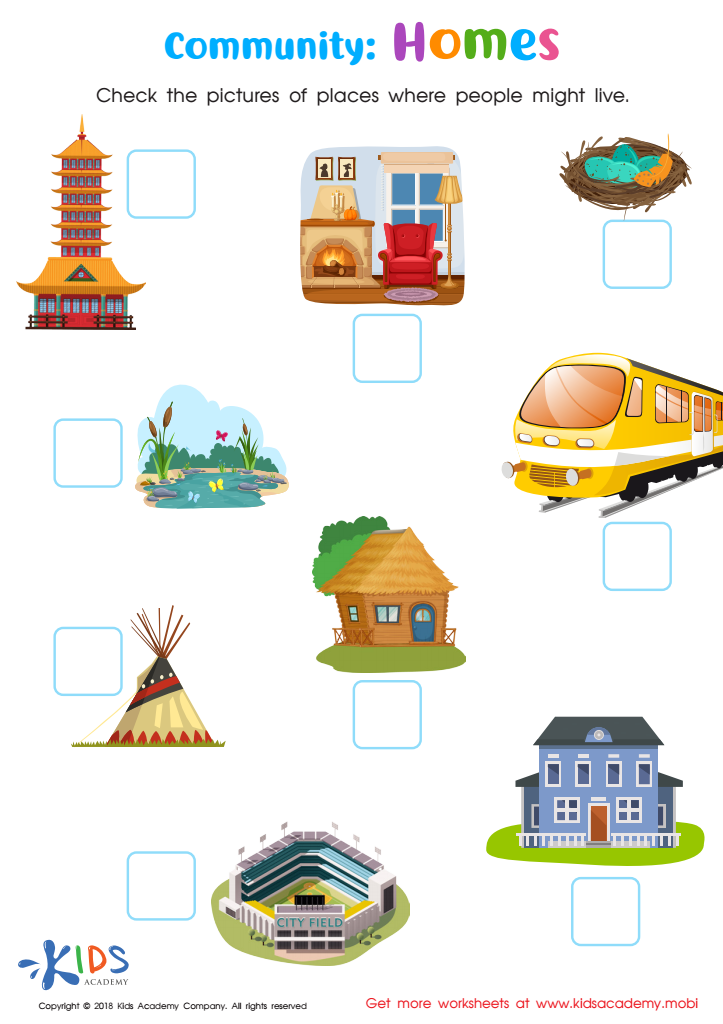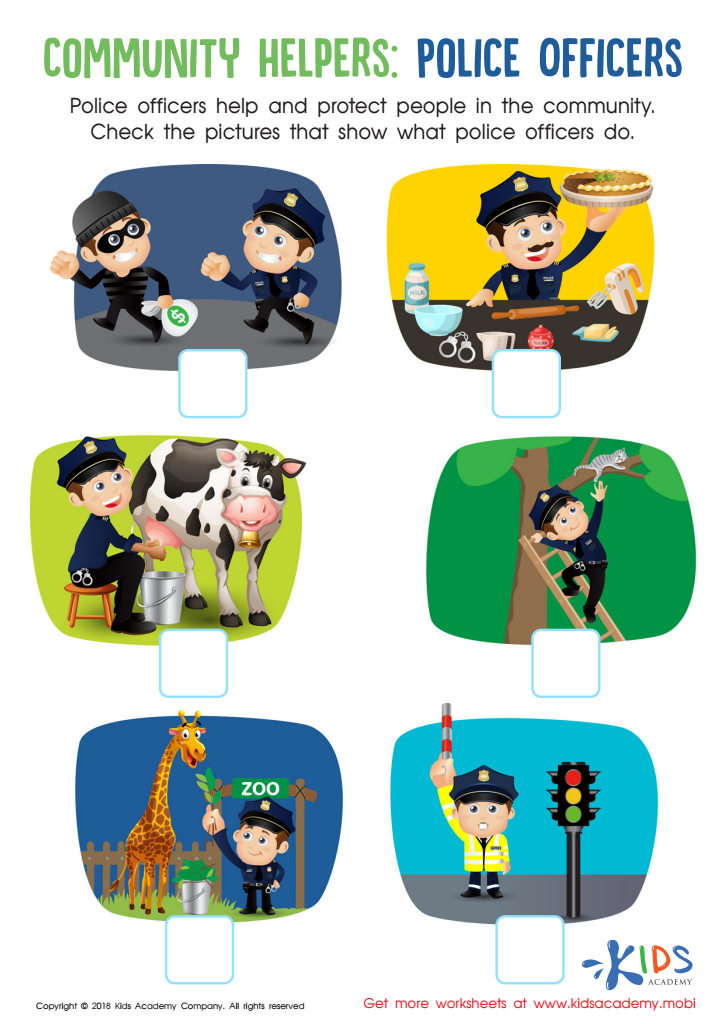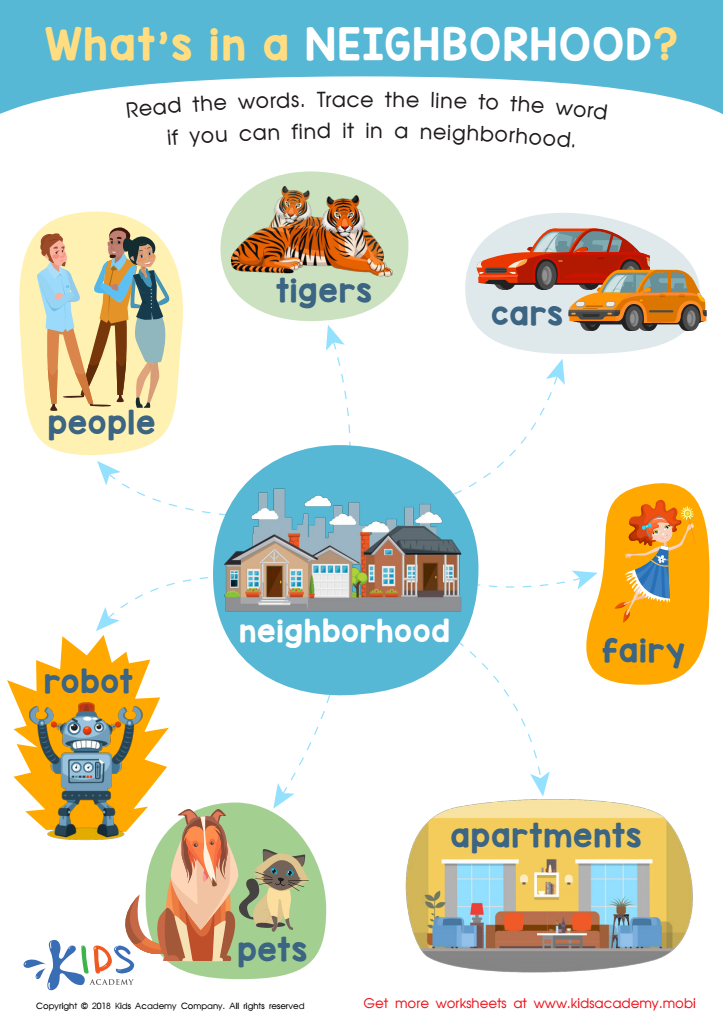Building vocabulary Community Worksheets for Ages 6-7
3 filtered results
-
From - To
Enhance your child's vocabulary with our "Building Vocabulary Community Worksheets" designed specifically for ages 6-7. These engaging worksheets explore essential community concepts, helping young learners associate words with their meanings through fun activities. From identifying community helpers to understanding places within their neighborhoods, children will gain confidence in expressing themselves while expanding their language skills. Ideal for parents and educators, these printable resources are perfect for supplementing classroom learning or facilitating at-home education. Foster your child's love for words and support their cognitive development while exploring the vibrant world of their community! Download today for an enriching learning experience!


Community: Homes Worksheet


Police Officers Community Helpers Worksheet


What's in a Neighborhood? Worksheet
Building a vocabulary community for children aged 6-7 is crucial for their overall language development and academic success. At this age, children are rapidly acquiring language skills, and the words they learn form the foundation for reading comprehension, writing ability, and effective communication. A robust vocabulary is not only about knowing words but also understanding their meanings, contexts, and nuances, which significantly enriches a child’s learning experience.
Parents and teachers can create a vocabulary community by engaging children in conversations that introduce new words in fun and meaningful ways. Storytelling, interactive games, and word of the day activities can make vocabulary learning enjoyable and relatable.
Additionally, vocabulary development is linked to social skills; children learn to express themselves better and understand others, enhancing their interactions with peers. These early language skills are fundamental for boosting confidence and enthusiasm for learning, shaping children into effective communicators and eager learners.
Ultimately, fostering a vocabulary community encourages curiosity and a love for language, helping children to navigate not only their academic journeys but also their everyday interactions, setting them up for lifelong success. For these reasons, it is essential for parents and teachers to prioritize vocabulary development in young learners.
 Assign to My Students
Assign to My Students
















